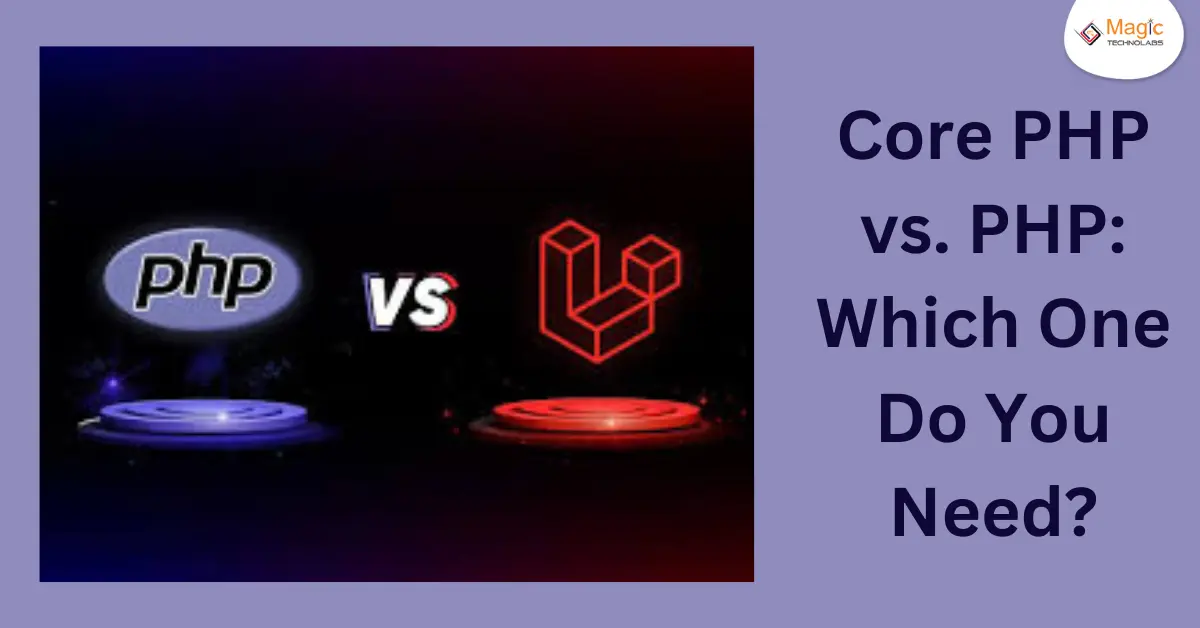Diving into the world of web development? You'll likely encounter the terms "Core PHP" and "PHP" frequently. But are they different? And which one should you use for your project? Worry not, aspiring developer, this blog will clear up the confusion!
Understanding PHP
At its core, PHP (Hypertext Preprocessor) is a scripting language specifically designed for web development. It allows you to create dynamic and interactive web pages. Think of it as the building block – the foundation for crafting powerful web applications.
Core PHP: Building from Scratch
Core PHP refers to using the raw power of the PHP language itself. Developers write code from scratch, leveraging the built-in functionalities of PHP. This approach offers:
Complete Control: You have ultimate control over every aspect of your application's structure and functionality.
Flexibility: Core PHP is incredibly adaptable, allowing you to tailor solutions to unique project requirements.
Security: With careful coding practices, core PHP applications can be highly secure. However, the onus of security falls entirely on the developer.
But there's a flip side to the coin:
Complexity: Building complex applications from scratch requires significant time, effort, and expertise.
Repetitive Tasks: Core PHP often involves writing code for common functionalities that might already exist in pre-built solutions.
Enter the PHP Frameworks
While core PHP empowers complete control, frameworks offer a different approach. A PHP framework is a collection of pre-written code libraries that provide a structured way to develop web applications. Imagine it as a pre-built toolbox with all the necessary components for efficient construction. Frameworks offer:
Rapid Development: By leveraging pre-existing functionalities, frameworks significantly accelerate the development process.
Standardized Code: Frameworks enforce coding practices, leading to cleaner, more maintainable code.
Security Features: Many frameworks include built-in security measures, reducing the risk of vulnerabilities.
However, frameworks also have limitations:
Learning Curve: Understanding a specific framework adds an additional layer to the learning process.
Less Flexibility: Frameworks impose a certain structure, which might limit customization for highly unique projects.
So, Core PHP or a Framework?
The answer depends on your project's specific needs. Here's a quick guide:
For simple projects or those requiring high customization, core PHP might be the way to go.
For complex applications, tight deadlines, or projects requiring a standardized approach, frameworks are a strong choice.
Ultimately, the best approach often lies somewhere in between. Experienced developers might combine core PHP with specific framework components to achieve optimal results.
The Final Takeaway
Don't get bogged down by terminology! Both core PHP and frameworks are powerful tools in a web developer's arsenal. Understanding their strengths and weaknesses will equip you to choose the right approach for your project, leading you to successfully build dynamic and engaging web applications.
















